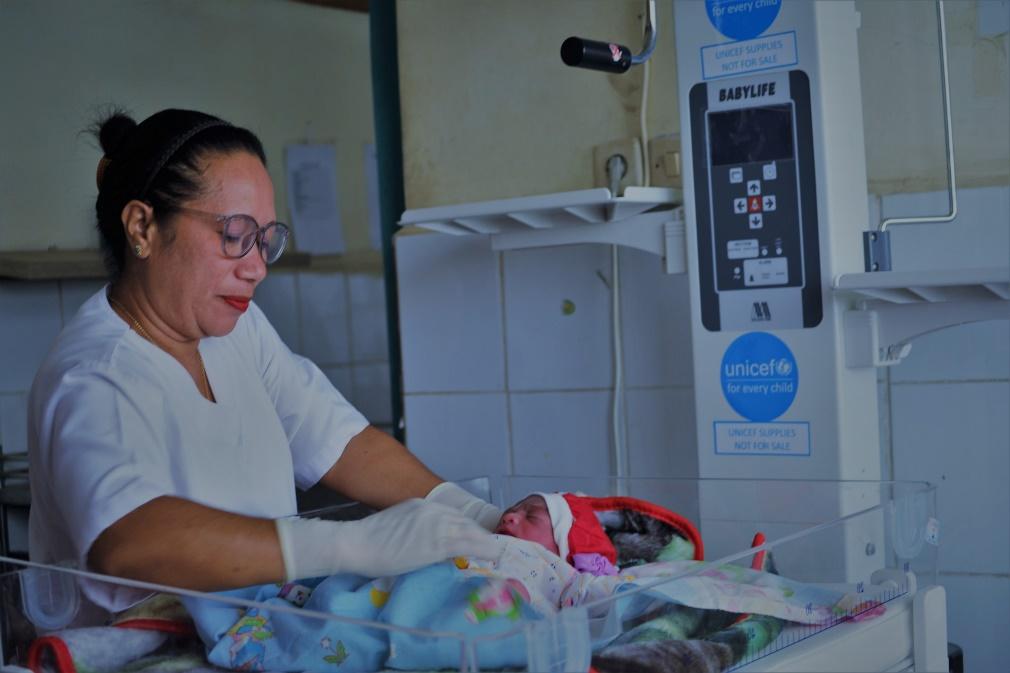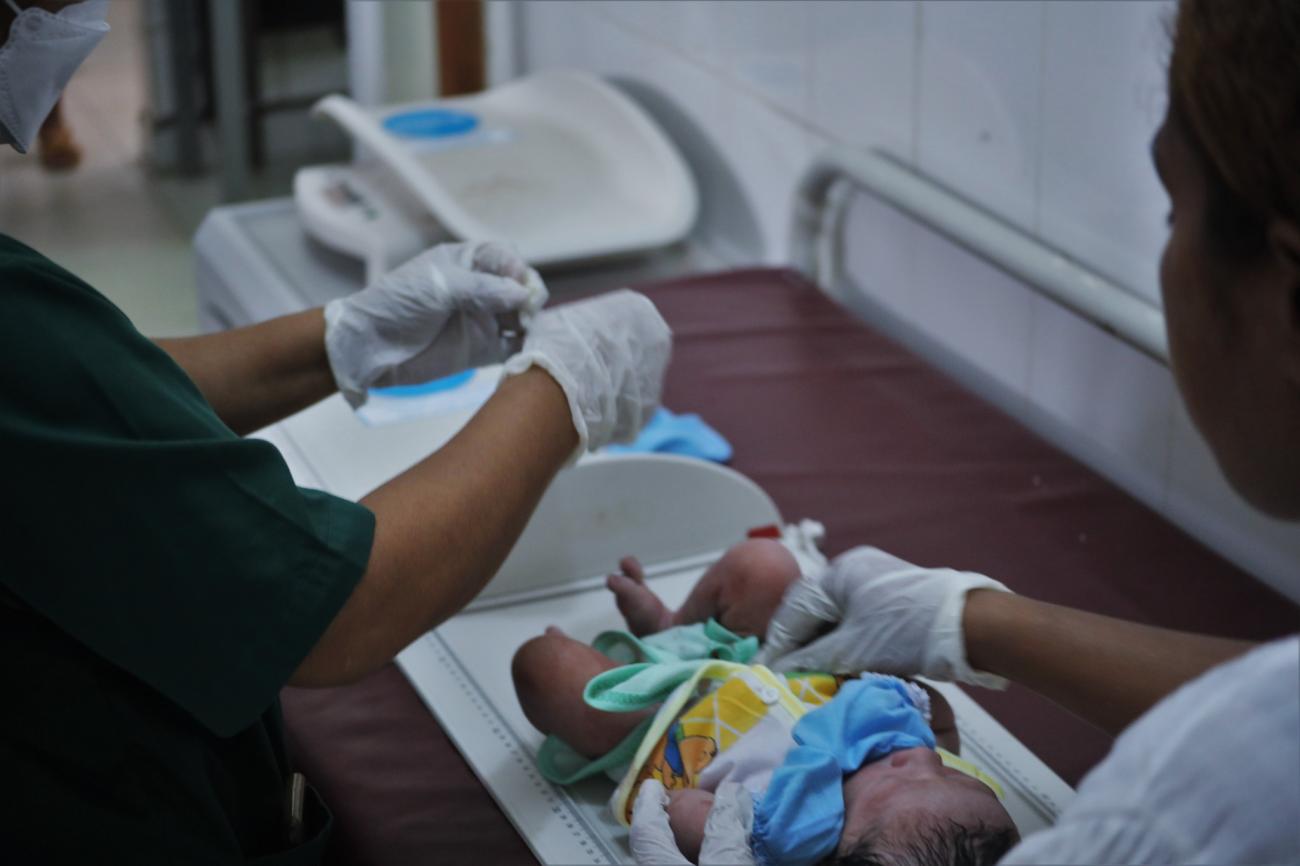The anxious father jumps up from his seat and rushes into the delivery room to meet his newborn daughter.
The inside of the delivery room is one of calm, as a set of a well-choreographed actions are followed by a group of nurses and midwives. A midwife gently wipes the child and places the newborn baby at the mother’s breast for early initiation of breastfeeding and skin-to-skin contact – a critical step in ensuring survival of children and a good start to proper nutrition for the child.

A midwife makes sure a newborn baby is comfortable at a hospital in Timor-Leste. CQI programme 2022/Timor-Leste/Benevides
A nurse later takes the baby to be weighed and measured for height, as a midwife checks the blood pressure of the mother and contractions to prevent post-partum hemorrhage.

A nurse weighs a newborn at a community healthcare center in Timor-Leste. CQI programme 2022/Timor-Leste/Benevides
The coordinated work of nursing staff and midwives is a result of training and equipment provided through a partnership between the Ministry of Health and the United Nations Children’s Fund (UNICEF). Funding from the Government of Japan has contributed to the purchase of a range of equipment to help with the safe delivery of babies and treatment of children and mothers in 37 Community Health Centers in 6 municipalities.
Some of the essential medical supplies included gynecology tables, child and neonatal resuscitation tables with warmers and accessories, equipment sterilizers, mobile examination lights, doppler FHR (foetal heart rates) detectors, midwifery kits, electric nebulizers, hand operated resuscitators and sphygmomanometers. The equipment would enable healthcare personnel to provide regular and emergency care to newborns, babies, children and mothers.
The training and equipment are provided under UNICEF’s Continuous Quality Improvement (CQI) initiative, a framework focused on maternal, newborn and child health (MNCH) developed by the Ministry of Health with technical and financial support from UNICEF. The CQI approach ensures that healthcare is safe, effective, patient-centered, timely, efficient and equitable.
The CQI programme has been implemented by the Ministry of Health, with support from UNICEF, since 2018. The main goal of the CQI programme is to improve quality of care for improving health outcomes of communities accessing health services, including reduction of deaths.
“Since the beginning of the CQI programme, service delivery has improved at these CHCs, staff are part of processes that help identify issues and come up with solutions,” said Snra. Augusta Lopez. “We see our efforts paying off. There is an increase in visits to the health center, and more confidence in families bringing their children to receive routine vaccines and seeking healthcare.”
The CQI initiative is funded by the Government of Australia through the Australian NGO Cooperation Program (ANCP) and the procurement of equipment for six municipalities was funded by the Government of Japan.







